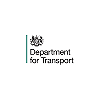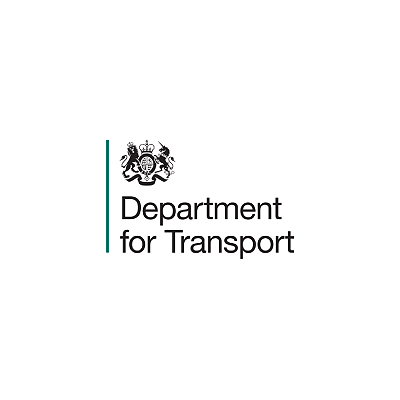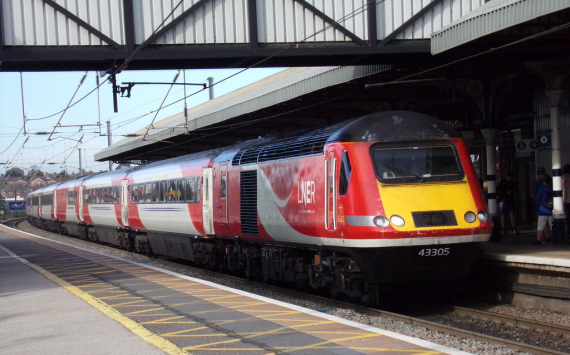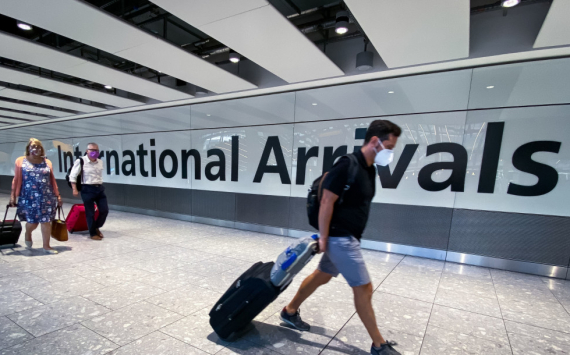Description
The Department for Transport (DfT) is the government department responsible for the English transport network and a limited number of transport matters in Scotland, Wales and Northern Ireland that have not been devolved. The department is run by the Secretary of State for Transport, currently (since 24 July 2019) Grant Shapps.
History
The Ministry of Transport was established by the Ministry of Transport Act 1919 which provided for the transfer to the new ministry of powers and duties of any government department in respect of railways, light railways, tramways, canals and inland waterways, roads, bridges and ferries, and vehicles and traffic thereon, harbours, docks and piers.
In September 1919, all the powers of the Road Board, the Ministry of Health, and the Board of Trade in respect of transport, were transferred to the new ministry. Initially, the department was organised to carry out supervisory, development and executive functions, but the end of railway and canal control by 1921, and the settlement of financial agreements relating to the wartime operations of the railways reduced its role. In 1923, the department was reorganised into three major sections: Secretarial, Finance and Roads.
The ministry's functions were exercised initially throughout the United Kingdom. An Irish Branch was established in 1920, but then was taken over by the government of the Irish Free State on the transfer of functions in 1922.
The department took over transport functions of Scottish departments in the same year, though certain functions relating to local government, loan sanction, byelaws and housing were excepted. In May 1937, power to make provisional orders for harbour, pier and ferry works was transferred to the Secretary of State for Scotland.
The growth of road transport increased the responsibilities of the Ministry, and in the 1930s, and especially with defence preparations preceding the outbreak of war, government responsibilities for all means of transport increased significantly.
Government control of transport and diverse associated matters has been reorganised a number of times in modern history, being the responsibility of:
- 1919–1941: Ministry of Transport
- 1941–1946: Ministry of War Transport, after absorption of Ministry of Shipping
- 1946–1953: Ministry of Transport
- 1953–1959: Ministry of Transport and Civil Aviation
- 1959–1970: Ministry of Transport
- 1970–1976: Department of the Environment
- 1976–1997: Department of Transport
- 1997–2001: Department for the Environment, Transport and the Regions
- 2001–2002: Department for Transport, Local Government and the Regions
- 2002–present: Department for Transport
The name "Ministry of Transport" lives on in the annual MOT test, a test of vehicle safety, roadworthiness, and exhaust emissions, which most vehicles used on public roads in the UK are required to pass annually once they reach three years old (four years for vehicles in Northern Ireland).
Role
The Department for Transport has six strategic objectives:
- Support the creation of a stronger, cleaner, more productive economy
- Help to connect people and places, balancing investment across the country
- Make journeys easier, modern and reliable
- Make sure transport is safe, secure and sustainable
- Prepare the transport system for technological progress and a prosperous future outside the EU
- Promote a culture of efficiency and productivity in everything it does
The department "creates the strategic framework" for transport services, which are delivered through a wide range of public and private sector bodies including its own executive agencies.
2017 judicial review
Following a series of strikes, poor performance, removal of access for the disabled and commuter protests relating to Govia Thameslink Railway a group of commuters crowdfunded £26,000 to initiate a judicial review into the Department for Transport's management and failure to penalise Govia or remove the management contract. The oral hearing to determine if commuters have standing to bring a judicial review was listed for 29 June 2017 at the Royal Courts of Justice.
The attempted judicial review was not allowed to proceed, and the commuters who brought it had to pay £17,000 in costs to the Department for Transport.
Executive agencies
- Driver and Vehicle Licensing Agency (DVLA)
- Driver and Vehicle Standards Agency (DVSA)
- Highways England (formerly the Highways Agency)
- Maritime and Coastguard Agency (MCA)
- Vehicle Certification Agency (VCA)
Non-departmental public bodies
The DfT sponsors the following public bodies:
- British Transport Police Authority
- Northern Lighthouse Board
- Transport Focus
- Trinity House Lighthouse Service
- Civil Aviation Authority
- Independent Commission on Civil Aviation Noise
Transport data
The DfT maintains datasets including the National Trip End Model and traffic counts on major roads.
Devolution
The devolution of transport policy varies around the UK; most aspects in Great Britain are decided at Westminster. Key reserved transport matters (i.e., not devolved) are as follows:
Scotland Reserved matters:
- Air transport
- Marine transport
- Navigation (including merchant shipping)
- Driving and vehicle certification
- Railways (cross-border)
- Road Numbering
Northern Ireland Reserved matters:
- Civil aviation
- Navigation (including merchant shipping)
The department's devolved counterparts in Northern Ireland are:
- Department for Infrastructure (general transport policy, ports, roads, and rail)
- Department of the Environment (road safety and the regulation of drivers and vehicles)
- Wales Under the Welsh devolution settlement, specific policy areas are transferred to the National Assembly for Wales rather than reserved to Westminster.




























